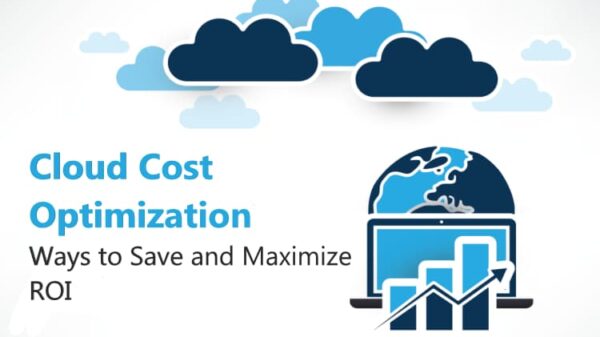Healthcare is evolving day by day with the help of the latest technologies like AI and Cloud Computing, to provide better medical facilities to the patients. While initially with the medical records of the patients being stored in the physical forms such as files, or at local data centers, maintaining them over a long period and accessing them across different locations posed a major challenge for the Healthcare industry. Often, patients were unable to receive the right treatment in time as the medical history records remained untraceable. The use of Cloud Computing in Healthcare made record-keeping and its management a lot easier.
With the Cloud Computing systems such as AWS, Microsoft Azure, and Google Cloud Platform in the medical facilities, tracking of the previous medical records has become possible, without the risk of complete data loss that was largely seen before. Moreover, it has also made the sharing of medical data seamless over different locations.
Pain Points of the Healthcare Industry
Here are the pain points that the healthcare industry witnessed before the inception of cloud computing:
Issues in Maintaining the Inventory
For multi-specialty hospitals keeping up the inventory all the time is essential to provide the treatment at the right time. Without the right data storage options, it was more likely to miss some of the important products during tracking and this could cause an unanticipated shortage during an emergency.
Lagging Speed of the Database
Each second counts when it comes to crucial medical cases, where delay can be fatal. Having age-old databases can make the retrieval of medical data a lengthy and stringent process that can waste a lot of precious time which could be used to cure the patient.
Difficulty in Retrieving the required data in time
With the healthcare data mostly unstructured in nature, finding the required data in the hour of the need can be very difficult. Thus storing it in a classified and systematic manner is essential to make it more accessible.
Issues during the Transfer of Data
Medical data needs to be transferred over different locations, especially in the case of medical facilities that operate as chains. With the large volumes of data that have to be transferred regularly, data transfer can create accessibility issues, which might pose serious concerns in case of medical emergencies.
Key Benefits of using Healthcare Cloud Computing
Cloud computing has not just overcome these pain points mentioned above but has brought in several benefits that could be leveraged to provide better healthcare to patients. The key benefits of Healthcare Cloud Computing include:
-
Ideal for emergencies
-
Easy accessibility of data makes treatment quick and efficient
-
Keeps the medical data safe that can be easily retrieved at any point in time
-
Supports research in medicine by providing reference data for the case studies
-
Helps in maintaining the supply chain and inventory of the hospital efficiently
-
The patient’s entire medical history is curated at a single point for future reference
In a Nutshell
Healthcare is leveraging the latest technologies such as Cloud Computing to make the functioning a lot more efficient, taking the medical services to the next level. Not only does the data is stored robustly and securely but it also opens new doors of smart medical treatments for patients trying to extend the benefits of the facilities even in the remotest areas.
This is here to stay and a lot of work is still going on in this field to make optimum benefits out of this interdisciplinary approach.
Chapter247 Infotech is a full-service software partner specialized in architecting, designing & developing tech solutions by binding Web, IoT, Analytics, AI and Cloud technologies. Our global clients include organizations right from Enterprise, Midsize to startups. In 6+ years we have launched over 100 products with ambitious clients in industries like E-commerce, financial services, healthcare, education, shipping, energy, and retail. Key Capabilities- - Web and Mobile-centric Product and Application development - Enterprise Application services ( Development and Legacy Modernization) - Product Engineering ( MVP, Product development, support, and maintenance) - IoT Applications - Mobility Solutions - Cloud Consulting ( Application Migration, DevOps planning, and Automation) With Technology and ever-evolving culture as top priorities, you will work with… - a Business Strategist that is highly experienced in combining business strategy and user experience to fill in the business gap we aim to solve - a UX/UI Designer that will pair consumer-grade reactive with intuitive interaction design to elegantly produce design solutions that engage - a Solution Architect that architects your product with the right technologies and tools keeping in mind the ever-changing IT world - a Development team that loves tech and programs the product idea to life with an innate attitude of no compromise in quality

























































































































































































